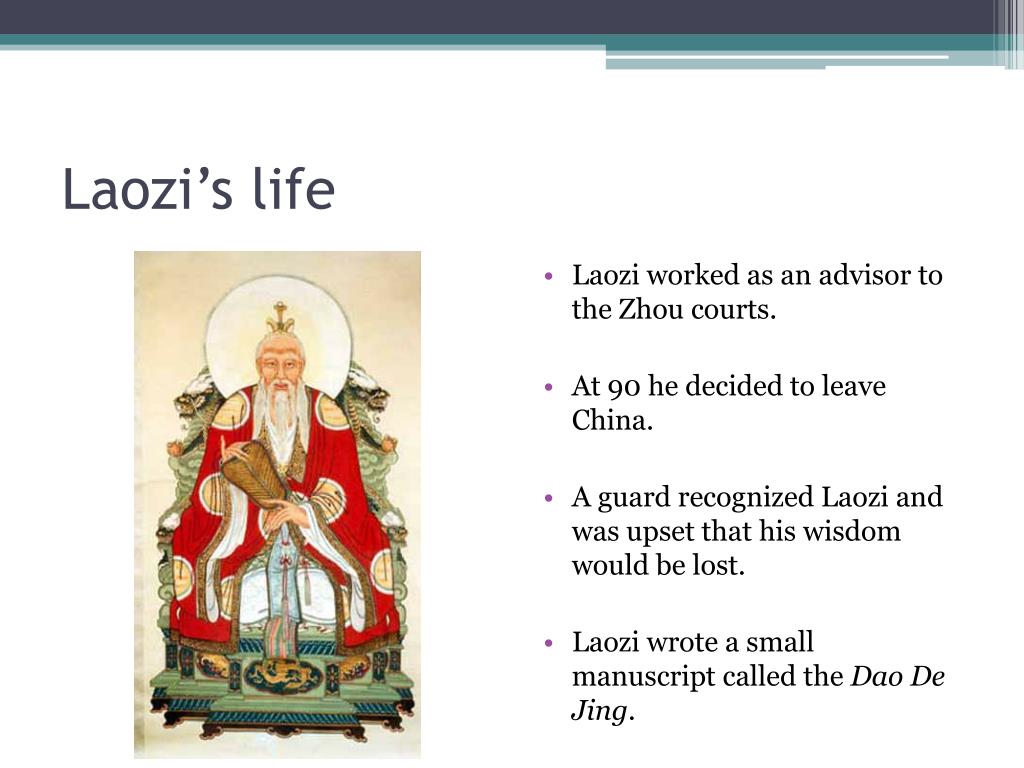
To this day the philosophies of Laozi and Confucius, and the religious movements their lives and teachings inspired, exist in vibrant forms in Chinese, Korean, Japanese, and Vietnamese culture as well. Over the centuries that followed, both Confucianism (Rujiao-the teachings of the scholars) and Daoism (Daojiao-the teaching of the Way) developed elaborate rituals and sacred writings. The result was a mix of philosophy and religion. The teachings of Laozi and Confucius were not incorporated into a religious movement until the Han dynasty (206 BCE–220 CE).
#DEFINE LAOZI HOW TO#
The concept of yin/yang reminded Laozi’s students to look for the balancing forces of opposites and learn how to cooperate with and embody them. Thus, if a person was good at making clothes, he or she shouldn’t become a cook. The principle of non-action meant that one should discern the natural course of things and cooperate with that movement. To assist this process, Laozi taught his followers the concepts of non-action (wuwei) and shade and light (yin/yang–primordial, dynamic balancing of opposites).

Laozi emphasized harmony with the Dao–a referent to something that cannot be named–in order to achieve balance in life. Their philosophies, though, are like two sides of a coin. How does Laozi define the way Laozi Taoism: Laozi is credited with writing the Tao Te Ching, the foundational text of the Chinese religion, Taoism. It is not certain whether they were contemporaries. The concept of Dao is more often associated with the figure Laozi and the classic Dao de Jing (The Book of the Way and Its Power) than with Confucius. Laozi (“Old Master,” sixth or third century b.c.e.) Appreciating the complexity of Chinese belief systesm is crucial to understanding the forces that helped shape China. In understanding Chinese belief systems, it is important not to take terms at face value the word "religion" (zongjiao), for example, did not exist in the Chinese lexicon until the 19th century.

This is part of a series that examines Chinese belief systems: how people think and behave, philosophically and relgiously.

A short introduction to Laozi and Daoism.


 0 kommentar(er)
0 kommentar(er)
